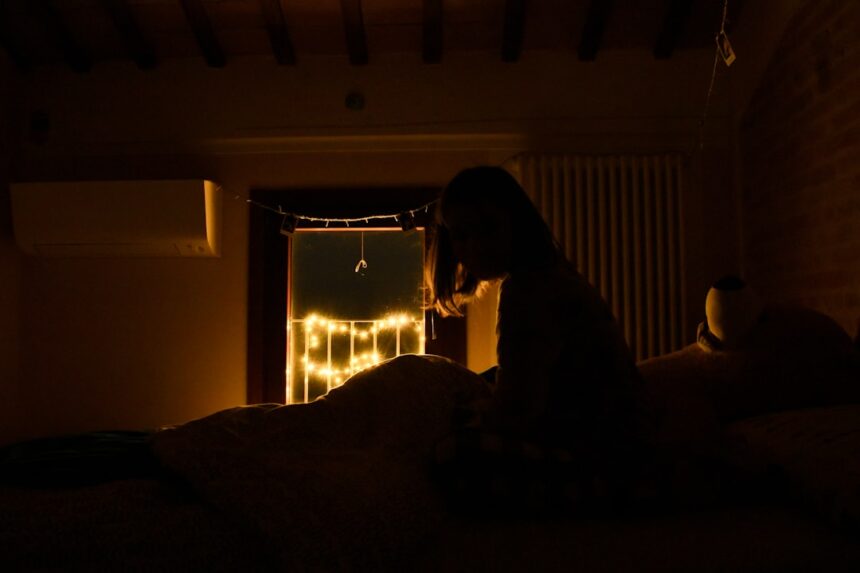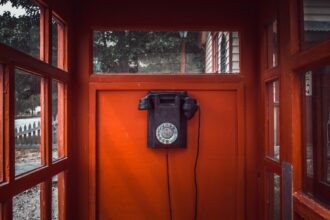Insomnia is a condition that affects countless individuals, leaving them tossing and turning in the dark hours of the night. You may find yourself struggling to fall asleep, waking up frequently, or waking up too early and being unable to return to slumber. This persistent inability to achieve restful sleep can lead to a myriad of issues, including fatigue, irritability, and difficulty concentrating during the day.
Understanding insomnia is crucial, as it can stem from various factors, including stress, anxiety, medical conditions, or even lifestyle choices. The reasons behind your insomnia can be complex and multifaceted. Perhaps you are grappling with a significant life change or feeling overwhelmed by daily responsibilities.
Your mind may race with thoughts and worries, making it challenging to unwind at night. Alternatively, you might be dealing with physical discomfort or health issues that disrupt your sleep cycle. Recognizing these underlying causes is the first step toward addressing your insomnia and finding effective solutions.
Key Takeaways
- Insomnia is a common sleep disorder characterized by difficulty falling asleep, staying asleep, or waking up too early, and can be caused by various factors such as stress, anxiety, and medical conditions.
- There is a connection between insomnia and spiritual awakening, as sleepless nights can lead to a deeper exploration of one’s inner self and a heightened sense of awareness.
- Coping with insomnia can be managed through various tips such as establishing a bedtime routine, creating a comfortable sleep environment, and avoiding stimulants before bedtime.
- Insomnia can lead to a deeper spiritual awakening by prompting individuals to embrace their spiritual journey and explore mindfulness and meditation as tools for finding peace and tranquility.
- Techniques for finding calm and tranquility during sleepless nights include deep breathing exercises, visualization, and gentle yoga to relax the body and mind.
The Connection Between Insomnia and Spiritual Awakening: Exploring the link
As you delve deeper into the realm of insomnia, you may begin to notice an intriguing connection between sleeplessness and spiritual awakening. Many individuals report that their struggles with insomnia have led them to explore their inner selves more profoundly. The quiet hours of the night can serve as a canvas for introspection, allowing you to confront your thoughts and emotions in a way that daytime distractions often prevent.
This exploration can lead to significant personal growth and a heightened sense of awareness. Moreover, insomnia can act as a catalyst for spiritual awakening by prompting you to seek answers beyond the physical realm. In those moments of restlessness, you might find yourself questioning your purpose, your beliefs, and your connection to the universe.
This quest for understanding can open doors to new spiritual practices, philosophies, and communities that resonate with your evolving sense of self. Embracing this connection can transform your sleepless nights into opportunities for profound insight and growth.
Coping with Insomnia: Tips for managing sleepless nights

When faced with insomnia, it’s essential to develop coping strategies that can help you manage those sleepless nights effectively. One of the first steps you can take is to establish a consistent bedtime routine. By creating a calming pre-sleep ritual, such as reading a book or practicing gentle stretches, you signal to your body that it’s time to wind down.
This routine can help ease the transition from wakefulness to sleep, making it easier for you to drift off when your head hits the pillow. Additionally, consider evaluating your sleep environment. Is your bedroom conducive to rest?
You might want to invest in blackout curtains to block out light or use white noise machines to drown out disruptive sounds. Creating a serene atmosphere can significantly impact your ability to fall asleep and stay asleep throughout the night. Remember that small changes in your environment can lead to substantial improvements in your sleep quality.
Embracing the Spiritual Journey: How insomnia can lead to a deeper spiritual awakening
| Insomnia Symptoms | Spiritual Awakening |
|---|---|
| Difficulty falling asleep | Increased mindfulness and meditation |
| Frequent waking during the night | Exploration of inner thoughts and emotions |
| Feeling tired and unrested | Seeking deeper meaning and purpose |
| Anxiety and stress related to sleep | Connecting with spiritual practices for peace |
As you navigate through the challenges of insomnia, it’s essential to recognize that this experience can be an integral part of your spiritual journey. The discomfort of sleeplessness may push you to explore new avenues of self-discovery and personal growth. You might find yourself drawn to practices such as journaling or meditation during those quiet hours, allowing you to connect with your inner thoughts and feelings on a deeper level.
Embracing this spiritual journey means acknowledging that insomnia is not merely a nuisance but an opportunity for transformation. You may discover hidden aspects of yourself that have long been buried beneath the surface. By leaning into these moments of discomfort, you can cultivate resilience and gain insights that contribute to your overall spiritual development.
This journey may not always be easy, but it can lead you toward a more profound understanding of yourself and your place in the universe.
Finding Peace in Sleeplessness: Techniques for finding calm and tranquility during the night
Finding peace during sleepless nights is crucial for maintaining your well-being. One effective technique is practicing deep breathing exercises. As you lie awake, focus on your breath—inhale deeply through your nose, hold for a moment, and exhale slowly through your mouth.
This simple practice can help calm your racing mind and bring a sense of tranquility to your body. You may find that by redirecting your focus from anxious thoughts to your breath, you create a more peaceful internal environment. Another technique worth exploring is visualization.
Picture yourself in a serene setting—a tranquil beach or a lush forest—where you feel safe and at ease. Allow yourself to immerse in this mental imagery, engaging all your senses as you imagine the sights, sounds, and smells of this peaceful place. Visualization can serve as a powerful tool for calming your mind and fostering relaxation during those restless nights.
The Power of Meditation: Using mindfulness and meditation to ease insomnia and foster spiritual growth

Meditation is a powerful practice that can significantly alleviate insomnia while simultaneously nurturing your spiritual growth. By incorporating mindfulness techniques into your nightly routine, you create a space for stillness and reflection amidst the chaos of daily life. As you sit quietly and focus on your breath or a specific mantra, you cultivate awareness of the present moment, allowing worries about the past or future to fade away.
You might also explore guided meditations specifically designed for sleep. These recordings often incorporate soothing sounds and gentle guidance to help you relax and drift off into slumber. By making meditation a regular part of your life, you not only enhance your ability to cope with insomnia but also deepen your connection to your inner self and the universe around you.
Seeking Support: Connecting with others on a similar spiritual path
Navigating insomnia can feel isolating at times, but seeking support from others who share similar experiences can be incredibly beneficial. Consider joining online forums or local groups focused on spirituality or wellness where individuals discuss their journeys with insomnia and personal growth. Sharing your thoughts and feelings with others who understand can provide comfort and validation during challenging times.
Additionally, connecting with a mentor or spiritual guide can offer valuable insights into managing insomnia while fostering spiritual development. These individuals often have experience navigating their own challenges and can provide guidance tailored to your unique situation.
Embracing Acceptance: Letting go of frustration and finding peace in the present moment
One of the most transformative aspects of dealing with insomnia is learning to embrace acceptance. Instead of fighting against sleeplessness or feeling frustrated by it, try shifting your perspective toward acceptance. Acknowledge that this experience is part of your journey and that it doesn’t define who you are as a person.
By letting go of resistance, you create space for peace within yourself. Practicing mindfulness can aid in this process of acceptance. When you find yourself awake at night, instead of spiraling into frustration or anxiety about not sleeping, gently remind yourself that it’s okay to be awake right now.
Focus on the sensations in your body or the sounds around you without judgment. This shift in mindset allows you to cultivate a sense of calm amidst the chaos.
The Role of Gratitude: Cultivating gratitude as a tool for finding peace in sleepless nights
Gratitude is a powerful tool that can transform your perspective during sleepless nights. Instead of fixating on what’s causing your insomnia or how tired you feel, try shifting your focus toward gratitude for the present moment. You might find it helpful to keep a gratitude journal by your bedside where you jot down three things you’re grateful for each night before attempting to sleep.
This practice not only fosters positive emotions but also helps rewire your brain to focus on abundance rather than scarcity. By cultivating gratitude during those restless hours, you create an environment conducive to peace and acceptance, allowing you to embrace the experience rather than resist it.
The Importance of Self-Care: Nurturing the body, mind, and spirit during times of insomnia
During periods of insomnia, prioritizing self-care becomes essential for nurturing your overall well-being. You may want to explore various self-care practices that resonate with you—whether it’s indulging in warm baths, engaging in creative activities, or spending time in nature. These practices not only provide comfort but also help replenish your energy levels during challenging times.
Additionally, consider incorporating nourishing foods into your diet that promote relaxation and support restful sleep. Herbal teas like chamomile or valerian root can be particularly soothing before bedtime. By taking care of yourself holistically—body, mind, and spirit—you create an environment where healing can occur even amidst sleeplessness.
Embracing the Journey: Finding purpose and meaning in the midst of sleeplessness
Ultimately, embracing the journey through insomnia allows you to discover purpose and meaning within this challenging experience. Rather than viewing sleepless nights as mere obstacles, consider them opportunities for growth and self-discovery. Each moment spent awake can lead you closer to understanding yourself on a deeper level.
As you navigate this journey, remember that every experience contributes to the tapestry of your life story. Embrace the lessons learned during sleepless nights—the insights gained about yourself, your desires, and your connection to the universe. By reframing insomnia as part of your spiritual journey rather than an inconvenience, you open yourself up to profound transformation and growth along the way.
During a spiritual awakening, individuals often experience a heightened state of awareness and consciousness, which can sometimes lead to insomnia. This phenomenon is explored in various articles that delve into the psychological and spiritual aspects of such awakenings. For those interested in understanding the connection between insomnia and spiritual awakening, a related article can be found on Unplugged Psych.
To learn more, you can read the article by visiting Unplugged Psych.
FAQs
What is insomnia?
Insomnia is a sleep disorder characterized by difficulty falling asleep, staying asleep, or waking up too early and not being able to fall back asleep.
What is spiritual awakening?
Spiritual awakening is a process of self-discovery and personal transformation that often involves a shift in consciousness and an increased awareness of the interconnectedness of all things.
How is insomnia related to spiritual awakening?
Insomnia is a common symptom experienced during spiritual awakening, as the process can bring about heightened levels of awareness, emotional intensity, and energy shifts that can disrupt sleep patterns.
What are some common causes of insomnia during spiritual awakening?
Causes of insomnia during spiritual awakening can include heightened sensitivity to energy, increased awareness of subconscious thoughts and emotions, and a shift in circadian rhythms due to spiritual practices or experiences.
How can insomnia during spiritual awakening be managed?
Managing insomnia during spiritual awakening may involve practicing relaxation techniques, maintaining a consistent sleep schedule, engaging in grounding activities, and seeking support from spiritual mentors or healthcare professionals.
When should someone seek professional help for insomnia during spiritual awakening?
If insomnia during spiritual awakening significantly impacts daily functioning, causes distress, or persists for an extended period of time, it is important to seek professional help from a healthcare provider or mental health professional.



